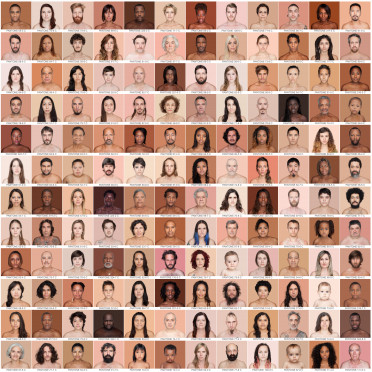The Global Race Project
Project description
The Global Race project investigates the reconfigurations of racism and the race concept since 1945 in light of the development of antidiscrimination policies across the globe. It aims at examining various theories and practices regarding the use of racial and ethnic categories in the scientific realm, state policies and social movements. Spreading across several disciplines, the project draws upon Demographics, Sociology, History, Political science, Philosophy and Law. Empirical investigation sites include international and regional bodies devoted to the protection of human rights, and three world regions that are characterized by contrasted understandings of race: North America, South America and Europe.
In the aftermath of the Second World War, the international community adopted a proactive anti-racism strategy based on the reassertion of the fundamental principle of equality without distinction of race or ethnic origin. Parallel to this strategy, the refutation of scientific theories of race led to the disqualification of the category of race as applied to human populations. However, this disqualification has not entailed a universal ban on the notion of race itself. While most European countries started considering the very notions of race and ethnicity as fallacies responsible for racism per se, some of them continued to use these categorizations in their own colonial empires, and a large number of countries across the world continued to collect ethnic and racial categories as ordinary population descriptors. These contrasted frames of race are reflected in the types of antidiscrimination strategies that are implemented:
- on the one hand, colorblind strategies consider that race and ethnicity should not be taken into consideration to achieve equality;
- on the other hand, race-conscious policies adopt the standpoint that dismantling racism and discrimination requires monitoring the situation of racialized groups.
Without clearly choosing between these two options, international antidiscrimination agencies have imposed on their member states to monitor and report on the existence and the consequences of racialized groups’ unequal treatment. To achieve this goal, data related to ethnicity and race needs to be collected. We will call this strategy the pragmatic turn. Moving away from an essentialist and biological definition, race and ethnicity are now conceived as socially constructed categories, combining ascription and self-identification. Parallel to this redefinition of race and ethnicity, racism has also undergone a profound evolution. Blatant racism based on an ideology of biological races ordered hierarchically has given way to a more subtle type of racism, fuelled by the circulation of cultural stereotypes and milder prejudices. New theories on “racism without race”, or even “racism without racists”, have been developed to account for this context.
The research questions we want to address in this project lie at the intersection of scholarship on race and ethnicity, assessment of antidiscrimination policies and the analysis of framings and policies’ international circulation. How and when did the strategy of disqualifying race started being accompanied—if not replaced—by a strategy aiming at managing the effects of race by monitoring practices and their consequences? Can we conclude that the objectives have moved from race-blind to race-conscious ones? Is a “third way” combining a race-blind approach in legislation and a race-conscious approach in policy-making observable in some cases? Will the convergence of international antidiscrimination organizations on the collection of race and/or ethnicity data lead to a new globalization of race and ethnicity politics? What are the debates and controversies fostered by this framing?
These broad questions will be examined in three articulated fieldworks:
- A theoretical and conceptual state of the art on the changes that affected the notions of race and the forms of racism. We will investigate the changes that occurred in the conceptualization of race in different domains of use (political, legal, scientific, and statistical), from an international comparative standpoint.
- A second fieldwork on international arenas – i.e. international and regional human rights bodies - and their contribution to the production and dissemination of legal, political, statistical, and intellectual standards on race.
- A third fieldwork focusing on 10 country case studies in Europe, North America and South America, exploring the articulation between antidiscrimination policies and ethnic and racial categorization in official and scientific statistics.
Principal Investigator
Patrick Simon (INED)
Project duration
48 monts, starting from December 2015.
Partner institutions
![]()

![]()
-
 Humanae Project (© Angelica Dass)
Humanae Project (© Angelica Dass)
